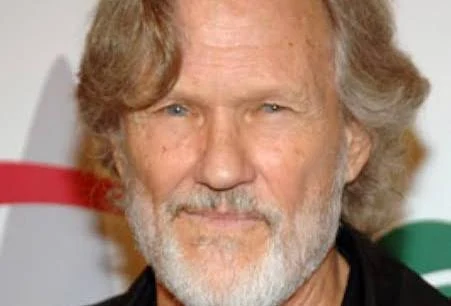The Beauty and Burden of Detachment
The song paints a picture of two wanderers sharing simple joys—singing along to the radio, living moment to moment. There’s a sense that happiness blooms in the ordinary when you’re free from possessions and plans. Yet, as the verses unfold, Freedom feels fragile. When Bobby moves on, the narrator realizes that liberty without love can feel like a form of loneliness.
Why It Resonates
- Freedom as Absence: The lyrics suggest that autonomy often emerges when obligations are set aside. But absence can sting; the song’s tone carries longing, not triumph.
- The Human Condition: We all crave independence, yet we also yearn for belonging. This tension, this push and pull between these desires, is a fundamental part of life’s complexity.
Kristofferson’s Songwriting Journey
Before writing this classic, Kris Kristofferson lived a life that reads like a novel. Born in Texas, he excelled as both a scholar and an athlete, earning a Rhodes Scholarship to attend Oxford University, where he pursued a degree in literature. This foundation gave his lyrics a literary edge. After Oxford, he served as a U.S. Army Ranger and helicopter pilot, rising to the rank of captain. Offered a teaching post at West Point, he turned it down to chase music in Nashville, working as a janitor at Columbia Studios and flying oil-rig helicopters to pay bills.
The title Me and Bobby McGee came from Monument Records founder Fred Foster, who challenged Kristofferson to write a song around it. Kristofferson misheard “McKee” as “McGee” and spun a cinematic tale inspired partly by Fellini’s La Strada. He explained:
“He was free when he left the girl, but it destroyed him. That’s where the line ‘ Freedom’s just another word for nothing left to lose’ came from.”
Modern Echoes
Modern Echoes: minimalism and digital nomadism promise liberation from clutter and constraints. But they also expose us to precarity. The enduring wisdom of the lyric’ Freedom without connection can feel hollow’ is a stark reminder of the importance of human connection in our lives.
Closing Thought
Perhaps the line isn’t cynical—it’s honest. Freedom is precious, but it’s not free of cost. Sometimes, to gain it, we let go of what we love. And in that letting go, we discover whether liberty alone can sustain us.
Janis Joplin’s Recording and Legacy
- Chart History: Joplin recorded Me and Bobby McGee for her album Pearl just days before her death in October 1970. Released posthumously in January 1971, it became her only No. 1 hit on the Billboard Hot 100, where it topped the chart for two weeks in March 1971.
- Cultural Impact: The song became an anthem of Freedom and heartbreak, covered by artists like Johnny Cash and Jerry Lee Lewis. Its central lyric remains one of the most quoted lines in American music, connecting us to a rich tradition of musical storytelling.
- Hall of Fame: In 2002, Joplin’s version was inducted into the Grammy Hall of Fame, cementing its place as a cultural milestone.
- Album Legacy: Pearl topped the Billboard 200 for nine weeks and is now considered one of the greatest albums of all time, a defining statement of Joplin’s artistry.
Freedom Is Just Another Word for Nothing Left to Lose: A Reflection on Bobby McGee
Me and Bobby McGee: A Philosophical Exploration of Freedom
Freedom is just another word for nothing left to lose.
It sounds liberating, but it’s layered with melancholy. Freedom here isn’t about abundance—it’s about absence. When you have nothing, you’re unbound. But what does that really mean?
The Beauty and Burden of Detachment
The song paints a picture of two wanderers sharing simple joys—singing along to the radio, living moment to moment. There’s a sense that happiness blooms in the ordinary when you’re free from possessions and plans. Yet, as the verses unfold, Freedom feels fragile. When Bobby moves on, the narrator realizes that liberty without love can feel like a form of loneliness.
Why It Resonates
- Freedom as Absence: The lyric suggests that autonomy often arises when obligations are set aside. But absence can sting; the song’s tone carries longing, not triumph.
- The Human Condition: We crave independence, but we also seek belonging. The tension between these desires defines much of life’s complexity, making us feel the depth of our human experience.
Janis Joplin’s Transformative Influence
When Janis Joplin recorded Me and Bobby McGee for her album Pearl, she infused Kristofferson’s words with raw vulnerability and bluesy grit. Her interpretation turned a reflective ballad into a cultural anthem. Released posthumously in 1971, it became her only No. 1 hit on the Billboard Hot 100 and was inducted into the Grammy Hall of Fame.
Joplin’s version didn’t just top charts—it shaped generations of artists. Her fearless vocal style and emotional honesty influenced singers like Melissa Etheridge, Bonnie Raitt, and Pink, who cite Joplin as a blueprint for authenticity. Country and Americana artists—from Emmylou Harris to Chris Stapleton—have echoed her ability to merge storytelling with soul. Even rock icons like Stevie Nicks and Joan Jett credit Joplin for proving that women could command the stage with unapologetic power.
Modern Echoes
Minimalism and digital nomadism promise liberation from clutter and constraints. But they also expose us to precarity. The wisdom of the lyric endures: Freedom without connection can feel hollow.
Closing Thought
Perhaps the line isn’t cynical—it’s honest. Freedom is precious, but it’s not free of cost. Sometimes, to gain it, we let go of what we love. And in that letting go, we discover whether liberty alone can sustain us.
